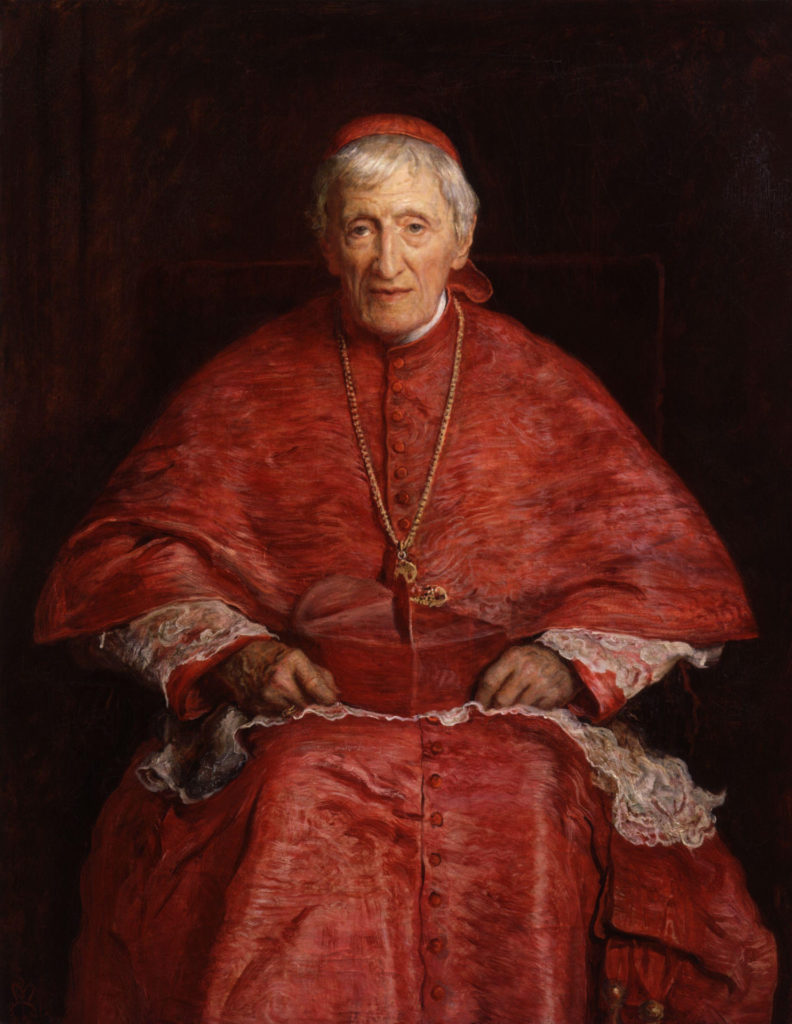We have a new Saint!
John Henry Newman was canonized by Pope Francis on October 13, 2019. He was born and baptized an Anglican in 1801. Saint John Henry Newman became Catholic in 1845 after being a major figure in the Oxford Movement, a movement that sought to bring the Church of England, the Anglican Church, back to its roots. It was his work in this movement that led him to becoming Catholic. Two years after he became Catholic, he was ordained a priest and joined the Congregation of the Oratory, founded by Saint Philip Neri.
Saint John Henry Newman is widely credited for believing and teaching that the lived experience of believers, as well as history, are key parts of theological reflection. He is known to have written over 40 books and 2,000 letters and essays. His most famous writings include An Essay on the Development of Christian Doctrine, On Consulting the Faithful in Matters of Doctrine, and his spiritual autobiography.
The newly canonized saint’s name is known to many people because it is linked to ministry centers at many colleges, Newman Centers. It is said that three years after Newman died, a Newman Club for Catholic students began at the University of Pennsylvania in Philadelphia.
Here are some of the quotes attributed to Saint John Henry Newman:
“We can believe what we choose. We are answerable for what we choose to believe.”
“A man would do nothing if he waited until he could do it so well that no one could find fault.”
“Fear not that thy life shall come to an end, but rather fear that it shall never have a beginning.”
“To live is to change, and to be perfect is to have changed often.”
Saint John Henry Newman…pray for us.

